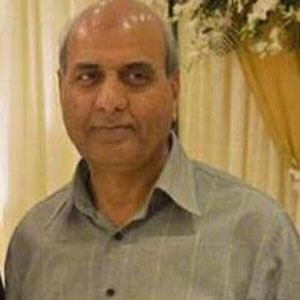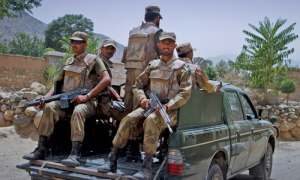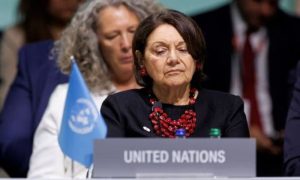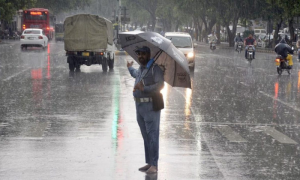The outcome of the Indian elections is not without surprises and shifts in the political landscape. The Bharatiya Janata Party (BJP), led by Prime Minister Narendra Modi, had launched their campaign with the ambitious slogan “Abki Baar 400 Paar” (This time, 400-plus seats), projecting confidence in achieving a substantial majority.
However, both the slogan and exit polls predicting an outright BJP majority were clearly flattened by the actual voter mood, revealing a populace that remains committed to an inclusive society and one which values diversity and resists extremist ideologies.
The BJP secured 240 seats, falling short of the 272-mark required for a majority in the 543-seat Lok Sabha, the lower house of India’s Parliament. Despite this, with its allies, the BJP managed to maintain a majority by winning 293 seats.
In stark contrast, the opposition INDIA alliance, spearheaded by the Indian National Congress (INC), won 232 seats. These figures present a significant deviation from the 2019 elections, where the BJP-led National Democratic Alliance (NDA) won a commanding 353 seats, with the BJP alone securing 303.
Narendra Modi’s campaign heavily leaned on Hindutva ideology, aiming to consolidate Hindu votes by marginalizing minorities, particularly Muslims. Modi’s rhetoric against Muslims reached unprecedented levels, with speeches referring to them as “infiltrators” and accusing the Congress of intending to redistribute wealth to Muslims. This strategy, however, backfired. While it failed to galvanize Hindu voters as anticipated, it strengthened minority communities’ resolve to support the opposition.
For the first time in 15 years, the BJP did not win the most seats in Uttar Pradesh. This state, central to the Hindu-nationalist agenda, had been a BJP stronghold, underpinning its parliamentary strength for the past decade.
The opposition’s strategic alliance, which included parties that previously competed against each other, presented formidable challenges to BJP candidates, resulting in the opposition winning more than half of the state’s seats.
One of the most notable defeats for the BJP was in the Faizabad constituency, home to the Ram temple in Ayodhya. This loss is particularly significant given that the temple’s consecration by Modi in January was a centerpiece of the BJP’s campaign.
Additionally, Modi’s own constituency, Varanasi, saw his victory margin significantly reduced to about 152,000 votes from nearly 480,000 in 2019. Rahul Gandhi, leader of the Congress, won Rae Bareli by 390,000 votes, while in Amethi, Congress candidate Kishori Lal unseated BJP’s Smriti Irani.
Maharashtra, another crucial state, saw the BJP and its allies face substantial losses. The INDIA alliance won 30 of the state’s 48 seats. The Congress alone claimed 13 seats, while the BJP secured just nine.
While Modi is poised to serve a third term as Prime Minister, the reduced parliamentary strength signifies a moral defeat for his Hindutva ideology. His leadership, characterized by efforts to establish Hindu hegemony and diminish the status of minorities, faced rejection from a significant portion of the electorate. The loss in Ayodhya, despite the controversial temple inauguration, underscores a broader disapproval of extremist policies.
However, the continuation of BJP rule poses concerns for marginalized communities, particularly Muslims, who have faced heightened public targeting and abuse over the past decade. Out of election result desperation, Modi may double down on his extremist policies. One should not expect that Modi will move away from his long-held Hindutva ideology.
Under Modi, it is also unlikely to see any change in India’s posture towards Pakistan, maintaining a stance of belligerence and hostility. This persistent antagonism raises concerns about regional stability in South Asia.
The Modi administration’s history of unilateral actions, particularly in Indian illegally occupied Jammu and Kashmir, suggests that his third term could further exacerbate tensions and increase the suffering of Kashmiris as well as minorities in India. A strong opposition in India will have to play its role to rein in Modi. It is also for the world community not to turn its back on human rights violations committed by the Modi government.























